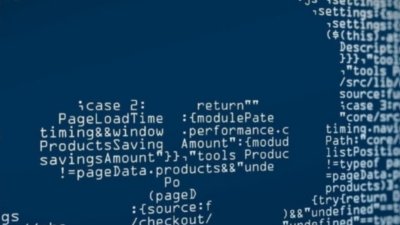A proposed bill before the U.S. House of Representatives, the Email Privacy Act, would overhaul 1986's Electronic Communication Privacy Act and require that law enforcement obtain a search warrant before reading online correspondence.
The bill currently has the support of 304 members of Congress, as well as some privacy advocates, BuzzFeed reported on Tuesday. A large coalition of businesses have lobbied for ECPA changes, among them Apple, Facebook, Google, Microsoft, and Yahoo.
"Users expect, as they should, that the documents they store online have the same 4th Amendment protections as they do when the government wants to enter the home to seize documents stored in a desk drawer," Google's director of law enforcement and information security, Richard Salgado, said at a House Judiciary Committee hearing on Monday. "There is no compelling policy or legal rationale for there to be different rules."
Opponents include the director of enforcement for the Securities and Exchange Commission, Andrew Ceresney, who argued at the hearing that the bill "poses significant risks to the American public," since it might interfere with the SEC and other organizations' ability to investigate illegal acts, like fraud.
Representatives for the National Association of Assistant US Attorneys and the Tennessee Bureau of Investigation called for exemptions that would let agencies read email without a warrant in the case of an emergency. In both cases, the people cited potential crimes against children like abduction or sexual assault.
The Judiciary Committee will still have to examine and modify the bill's language before it can be put to a vote before Congress. Another hearing will tackle similar problems related to cloud computing, something of special importance given that companies often serve clients living in one country with data hosted in another. The European Union also recently invalidated the Safe Harbor data exchange agreement, which previously exempted American tech companies from European regulations, but came under fire due to revelations about U.S. surveillance programs, which have regularly enjoyed collusion with businesses.
 Roger Fingas
Roger Fingas








 Marko Zivkovic
Marko Zivkovic
 Wesley Hilliard
Wesley Hilliard
 Malcolm Owen
Malcolm Owen


 William Gallagher
William Gallagher

 Andrew Orr
Andrew Orr









2 Comments
Opponents include the director of enforcement for the Securities and Exchange Commission, Andrew Ceresney, who argued at the hearing that the bill "poses significant risks to the American public," since it might interfere with the SEC and other organizations' ability to investigate illegal acts, like fraud.
Representatives for the National Association of Assistant US Attorneys and the Tennessee Bureau of Investigation called for exemptions that would let agencies read email without a warrant in the case of an emergency. In both cases, the people cited potential crimes against children like abduction or sexual assault.
Wouldn't the case of abduction or sexual assault get you a search warrant pretty quickly?
But I guess if it "poses significant (made-up) risks to the American public,", then all is fair game.
Given that I have doubts about the integrity of most government agencies, including the SEC, tough tooties.